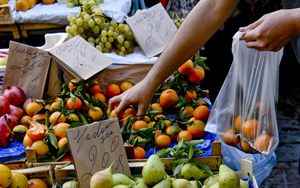(Finance) – Inflation at 6.5% has an alarming impact on consumers’ pockets and must lead the government to take urgent measures a protection of families and their purchasing power. Consumer protection associations affirm this, commenting on Istat inflation data for March. This morning, the National Institute of Statistics estimated that the national consumer price index for the whole community (NIC), gross of tobaccos, recorded an increase of 1% on a monthly basis and of 6.5 % on an annual basis, against + 5.7% in the previous month and + 6.7% in the preliminary estimate.
The hypothesis of administered prices
“The prices of food products represent a real alarm, which in March recorded a surge, increasing by + 5.8% compared to last year – explains the president of Assoutenti Furio Truzzi – This means that a family, just to eat, has to take into account a higher expenditure on average equal to +434 euros per year “.” We are in the presence of an emergency that confirms all the complaints on price increases launched by Assoutenti in recent weeks – Truzzi continues – The Government cannot stand by and, in the face of this crisis situation, it must adopt extraordinary measures, starting from administered prices for basic necessities like food that families cannot do without “.
The focus on excise duties
“The drop compared to the provisional figure shows that the reduction in excise duties has worked. However, more needs to be done! – he says Massimiliano Dona, president of the National Consumers Union – The Government can and must intervene to block these speculations due to the war effect in Ukraine, for example by further reducing excise duties and extending the measure beyond May 2, at least until, even with the restoration of the old excise duties, the prices of petrol and diesel will not return firmly to the already record prices of 2021 “.
“Furthermore – adds Dona – as proposed by us in the observations to the competition bill, giving a definition of anomalous price and expanding the case history of unfair commercial practicesso as to allow the Antitrust, which in the hearing in the Senate on 12 April has already anticipated in the matter of expensive fuels that the repression of generic speculative phenomena is not among its tasks but only the abuses of dominant positions or agreements restricting competition , to be able to intervene against those who take advantage of the war in Ukraine to inflate excessively prices and make disproportionate extra profits “.

The impact on families
“Inflation at 6.5% translates, for one couple with two children, in a sting equal to 2,303 euros on an annual basis, 1,052 only for housing, water and electricity, 594 euros for transport (it was 654 in the provisional figure, i.e. not calculating the reduction in excise duties), 434 for food and beverages, according to the calculations of the National Consumers Union. For a couple with 1 child, the annual higher expenditure is equal to 2,159 euros, 1,055 for the home, 517 for transport (it was 569 euros in the provisional figure), 391 euros for food and drinks, on average for a family the overall increase is 1851 euros, 990 for the house, 381 for transport (it was 419), 323 euros for food and drink. The record is up to couples without children with less than 35 years who have an annual increase of 2360 euros, 1247 only for the house and for large families with more than 3 children with a blow of 2,577 euros, 475 only for food “concludes Dona.
According to Federconsumatori, with the inflation rate at these levels, the burden on households will be € 1,943.50 in annual terms. The increase is heavily impacted by energy and food costs, “which have become almost unsustainable, so much so that families are changing their consumption habits and they are making many sacrifices. “According to the association’s findings, the consumption of meat and fish decreases by over 16% (given the strong increases in meat prices, due to the higher costs incurred for breeding), vegetables and more affordable and seasonal vegetables, we are increasingly avoiding eating outside the home (on the occasion of the Easter holidays only 1 in 10 families will choose to eat at a restaurant). crisis.

The alarm for growth
Overall, the Institute of Statistics underlines “that the executive measures on fuel excise duties and gas VAT weighed by 7 tenths of a point and this explains the downward correction”, he observes Confesercenti. “In this context, the continuation of the interventions, together with the end of the state of emergency, could stop the price rush and make it possible to recover around 10 billion euros of consumption between April and June, thus avoiding a negative change in GDP in the second quarter – adds the association – But, as we also asked at the hearing, they should be strengthened with more resources to support families and businesses. In particular, as regards excise duties on fuels, the introduction of an automatic mechanism to contain the increases in international prices could be useful. In today’s dramatic situation, these measures can keep our economy on a growth path. ”
